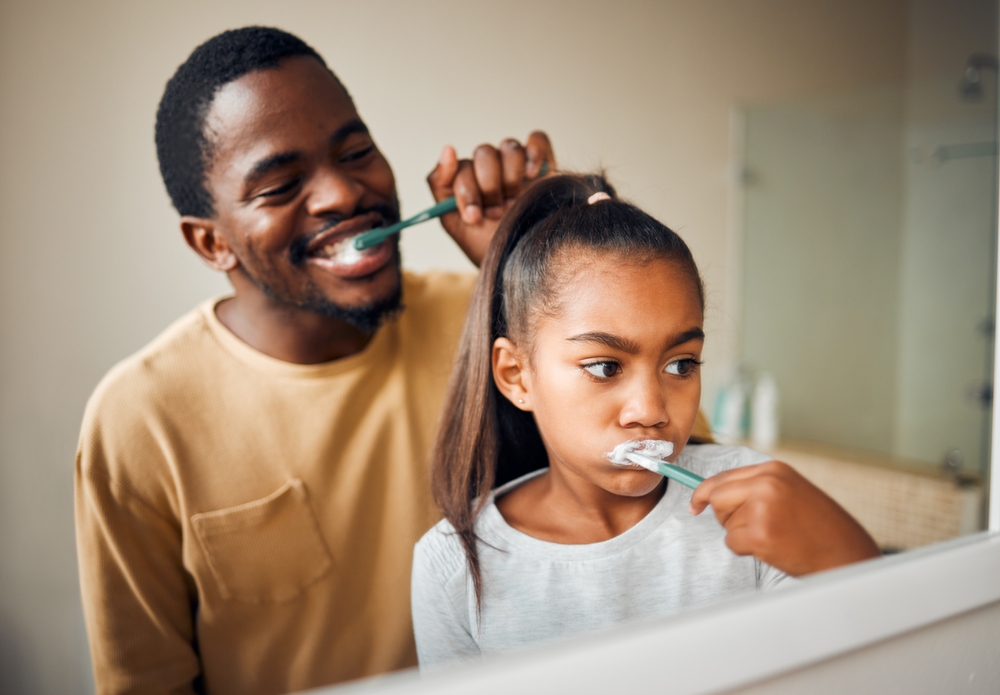You just finished a delicious meal and head straight to the bathroom, toothbrush in hand, feeling virtuous about your dental hygiene habits. After all, isn’t brushing after meals what dentists have been telling us to do for decades? Well, it turns out that this seemingly responsible habit might actually be harming your teeth rather than protecting them.
The acid attack your teeth face after eating
When you eat, especially foods containing carbohydrates or acidic items like citrus fruits, tomatoes, or vinegar-based dressings, your mouth becomes temporarily more acidic. This acid softens the enamel on your teeth, essentially weakening your dental armor for a short time.
This softening happens because acids from food and drinks, as well as those produced by bacteria feasting on food particles in your mouth, temporarily demineralize tooth enamel. Think of it as your enamel becoming slightly porous and vulnerable, like a sponge that’s absorbed liquid.
Under normal circumstances, your saliva works to neutralize these acids and gradually remineralize your enamel, returning it to its strong state. This remarkable natural process typically takes about 30 to 60 minutes after you finish eating. During this time, your tooth enamel is in a weakened, more vulnerable state.
Why immediate brushing causes damage
When you brush immediately after eating, you’re essentially scrubbing your teeth while their protective coating is temporarily softened. Even with the softest toothbrush and gentlest technique, brushing during this vulnerable period can:
Accelerate enamel erosion: The abrasive action of brushing, combined with most toothpastes which contain mild abrasives, can wear away the temporarily softened enamel much faster than normal.
Push acids deeper into teeth: Brushing can actually work acids from foods deeper into the porous, softened enamel rather than removing them.
Create micro-scratches: Softened enamel is more susceptible to tiny scratches from brushing. Over time, these micro-scratches accumulate and can make teeth more vulnerable to staining and decay.
Increase sensitivity: As enamel thins from repeated premature brushing, the sensitive dentin layer underneath becomes more exposed, leading to that sharp, painful reaction to hot, cold, sweet, or acidic foods and drinks.
This damage isn’t immediately noticeable. It’s a slow, cumulative effect that happens over months and years, which is why many people are shocked to learn their diligent post-meal brushing might have been contributing to dental problems.
The timing sweet spot for dental health
The ideal approach isn’t to abandon post-meal dental hygiene altogether but to adjust your timing. Dental experts generally recommend waiting at least 30 minutes after eating before brushing your teeth. This allows your mouth’s pH to normalize and gives your saliva time to begin remineralizing your enamel.
For highly acidic meals or drinks, like a glass of orange juice, coffee, or wine, you might want to wait even longer, up to 60 minutes, before reaching for your toothbrush.
If you can’t stand the feeling of food residue in your mouth after eating, there are safer alternatives to immediate brushing:
- Rinse with plain water: A simple water rinse can help wash away food particles and dilute acids without damaging enamel.
- Chew sugar-free gum: Popping a piece of sugar-free gum stimulates saliva production, which helps neutralize acids and clean your mouth naturally.
- Finish meals with tooth-friendly foods: Ending your meal with a piece of cheese or a glass of milk can help neutralize acids thanks to their calcium content.
- Use an alcohol-free mouthwash: Some alcohol-free mouthwashes are specifically designed to help neutralize acids and can be a good post-meal option.
Rethinking your daily dental routine
With this timing issue in mind, a more tooth-friendly daily dental routine might look like.
Brush before breakfast rather than after, especially if your morning meal includes acidic items like orange juice or coffee. If you must brush after breakfast, wait at least 30 minutes.
Rinse with water, chew sugar-free gum, or use floss to remove food particles. If you have the opportunity to brush, wait at least half an hour after eating.
Wait 30-60 minutes after dinner before brushing, and make this your most thorough brushing and flossing session of the day.
This revised approach might feel counterintuitive at first. Many of us grew up with messages emphasizing immediate post-meal brushing, and the clean feeling it provides can be psychologically satisfying. But the science is clear, and making this simple timing adjustment can significantly impact your long-term dental health.
Beyond brushing timing
While we’re rethinking dental care routines, it’s worth mentioning other common brushing mistakes that can compound damage.
Many people apply excessive pressure when brushing, thinking it will clean better. In reality, gentle pressure is all that’s needed, and anything more can damage gums and enamel. Soft bristles are effective at cleaning while minimizing damage to enamel and gums. Medium and hard bristles are rarely recommended by dental professionals. The recommended two minutes of brushing often feels longer than it actually is. Using a timer can help ensure you’re giving your teeth the attention they need.
Many whitening toothpastes contain higher levels of abrasives that can damage enamel over time. They’re best used occasionally rather than daily. Small adjustments to these habits, along with proper brushing timing, can make a significant difference in preserving your dental health over your lifetime.
The next time you finish a meal and feel the urge to reach immediately for your toothbrush, remember that patience is a virtue, especially when it comes to dental care. That short 30-minute wait might feel like an inconvenience, but your future self will thank you for the extra enamel strength and reduced sensitivity that comes from this simple timing adjustment.
Your teeth are meant to last a lifetime. Treating them with the right care, including understanding when not to brush, is an essential part of ensuring they do.
















